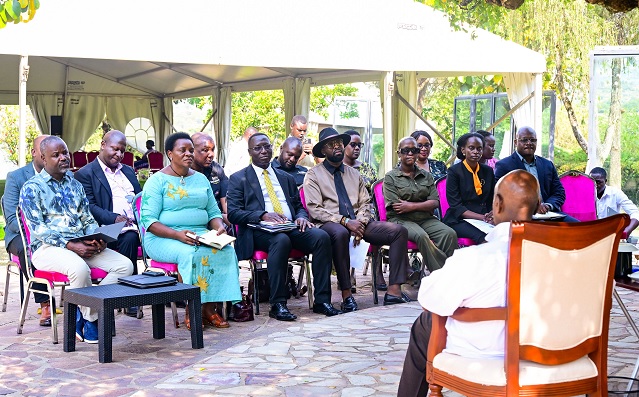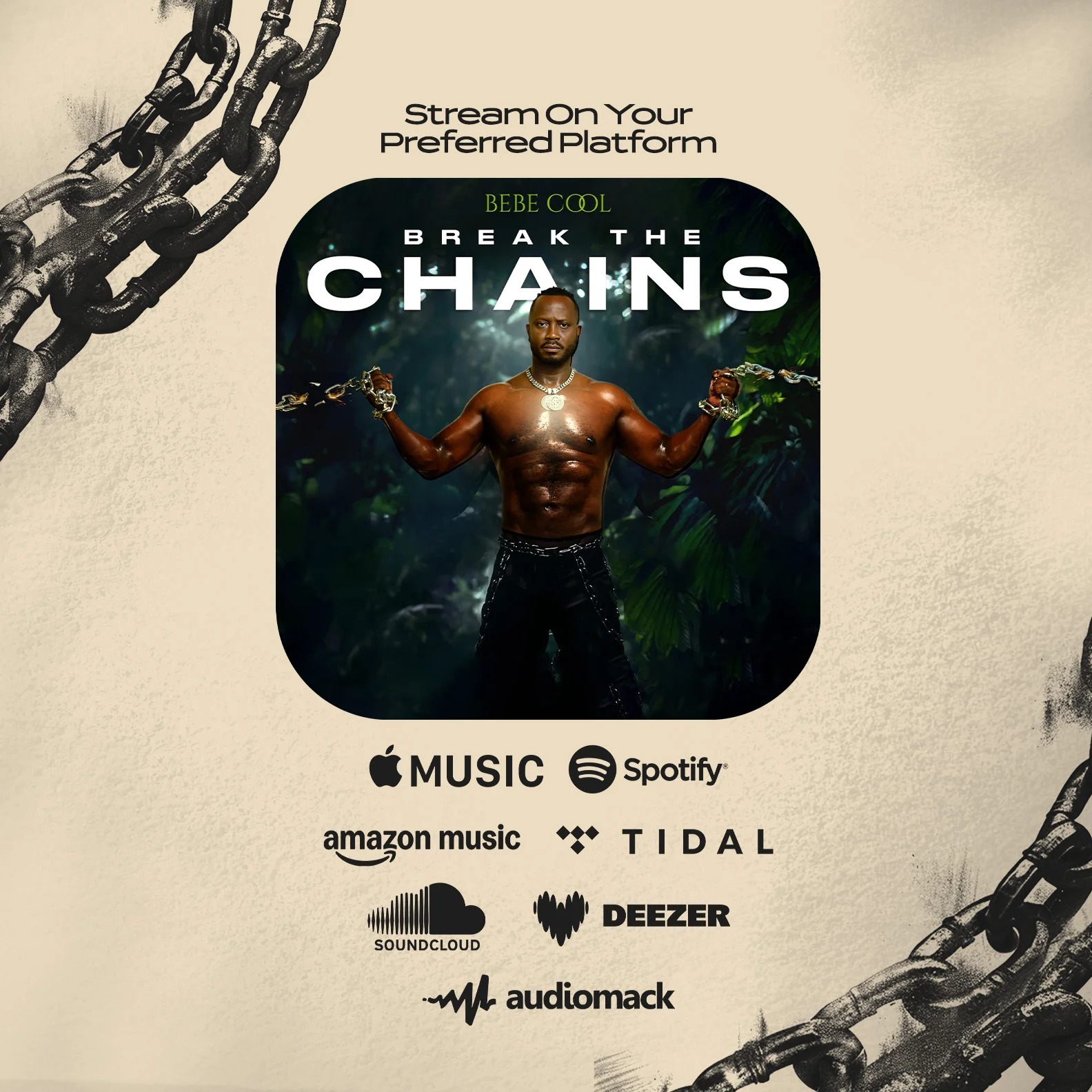If there is one particular topic that has controlled conversations and debates in Uganda’s entertainment sector for the past decade or so, it is the Copyright law. And if there is one excuse that most artists have always clung tightly onto for not thriving or even making colossal amounts of money, it has still been the copyright law.
Regardless of whether one knows exactly what the law means or how it affects them as artists, or not, copyright has always been the problem of Uganda’s artists, musicians, at least to the best of their knowledge.
When musicians’ associations sprang up, as recently as the Covid-19 era, when musicians through the Uganda Musicians Association (UMA) crowded Gulu to meet Operation Wealth Creation’s Gen. Salim Saleh for God knows what, the inefficiency of the copyright law was always their bargaining power, or scapegoat, if you may.
But one would ask oneself, what is this copyright law that just can’t get off the lips of Ugandan musicians?
The Copyright and Neighbouring Rights Act was enacted in 2006 by the Parliament of Uganda with the primary intention to incentivise authorship, with the prospect of economic reward to rights holders. The Act, according to Uganda Law Reform Commission’s review of the same, in 2022, provided for the protection of literary, scientific and artistic intellectual works, computer programmes, electronic data banks and their neighbouring rights.
The Commission further described that Copyright is, therefore, a tool by which the government seeks to promote scientific, cultural and economic progress.
“The goal of copyright and neighbouring rights protection is to encourage creativity, not only to reward innovation but also to serve a public good.” Uganda Law Reform Commission Issue Paper, 2022
However, despite the enactment of such an enticing law on the part of the artists and creators, the consumers of art, law enforcers and several other stakeholders were clearly not in tandem with what the law demanded, hence continuously violating the law and weakly enforcing it.
Alex Mukulu, a seasoned Playwright and Composer, says that the Copyright law, from the time of its enactment, suffered from a lack of infrastructure to enable enforcement.
He gave an example of how, years ago, veteran musician Hope Mukasa confronted a music vendor in Katwe for pirating and selling his music without permission from Mukasa, only for the vendor to pull out a machete on Mukasa, saying, “Leave me alone, Hope. I’m trying to make money just like you,”
“The lack of information about Copyright from the beginning, to me, was the start of the challenges we artists have faced as far as the law is concerned. Some musicians thought that the law was their gate pass out of poverty, including those whose music could not even be bought by anyone,” Mukulu said
He added that, “back then, the enforcers lacked the right infrastructure to track which song, play, film was played or screened where and by whom, to track compliance with the law.”
With such challenges and more, it was, therefore, clear that the old law needed to be reformed. To achieve this, Mawokota North MP and musician Hilary Kiyaga, alias Dr. Hilderman, was given leave of Parliament in 2022 to draft a private member’s bill for the Copyright and Neighbouring Rights amendments.
After a long back-and-forth process, which saw government taking up the bill, and later involving Uganda National Musicians Federation (UNMF) President Eddy Kenzo, the bill was finally tabled in Parliament for its first reading, on May 13, 2025, and thereafter referred to the Legal and Parliamentary Affairs committee by the Speaker Anitah Among. Immediately, many artists went into celebrations, seeing light at the end of the tunnel.
The need for amendments
To begin with, artists and the movers of the bill always pointed out the need to have a law that addresses the needs of the current times, especially in light of dthe igital transformation that greatly affects innovation and creativity.
The copyright law needed to be amended in order to facilitate the commercial and cultural opportunities of the digital economy. On the part of the Government, as the country moves closer to attaining middle-income status, Information and Communication Technology (ICT) presents an opportunity that must be exploited.
On the part of the artists, creatives, the Copyright law as it is today makes it extremely hard for them to benefit from the work, especially now that the world has gone digital.
Geoffrey Ekongot – Executive Director, Uganda Musicians Association says: “In the current digital and highly evolving business landscape, the law somewhat lacks flexibility for enhancing innovation, creative re-use and commercial exploitation and development of new business models.
The tabled amendments, therefore, are necessary to explore the extent to which the law can be open and flexible to accommodate future technological developments.
Ekongot adds that it is a very good and timely thing that the copyright law is being amended for the second time. However, he cautions that before the benefits of the amendment can be realised, the first step should be filling the knowledge gap.
“It will be very hard for the law to be put into efficient application if the stakeholders are not aware, first, of the contents of the law, and then secondly, how the law can be applied to benefit the owners and creators of the various artistic works,” Ekongot said
But is it going to be rosy if the bill is finally passed into an amended law? Ekongot points out some sections and clauses in the bill that speak to a brighter future for owners of literally and artistic works.
The issue of contracts in the creative industry, for example, has, for a long time, affected artists, hence rendering them poor in their old age, despite creating tremendously good works.
Section 34, clause 1 of the bill stipulates that publishing, public performance and broadcasting of works shall be in writing and signed or marked by the parties to the contract.
Clause 2 further says that the contract shall be registered with the Registrar within 60 days from the date of signing the contract, and failure to do so, that contract shall be rendered voidable.
The section also provides for an option of reverting the ownership of rights to the original owner after 20 years, which, according to Ekongot, will further help musicians safeguard their works for a very long time.
More substantially, the amendments are set to bring into effect the various global copyright and neighbouring rights treaties that Uganda has been a party to for a long time, but which have not been effectively implemented.
The Beijing Treaty on Audio-visual Performances, adopted in 2012, should interest many artists in that category. The Treaty deals with the intellectual property rights of performers in audio-visual performances.
The original objective of the Treaty was to protect actors, singers, musicians, dancers, and other persons who act, sing, deliver, play in, interpret, or perform literary or artistic works or expressions of folklore in audio-visual performances such as motion pictures and television shows.
At the time of the treaty, according to the Uganda Law Reform Commission, beneficiaries would only be protected at the level of compensation for being part of a particular audio-visual.
Ekongot says that with the current amendments in the bill, audio-visual artists will now be able to claim residual income in terms of royalties, and “that will apply to when the film, music video or any audio-visual work plays both locally and internationally, which I think is a win for the artists.”




